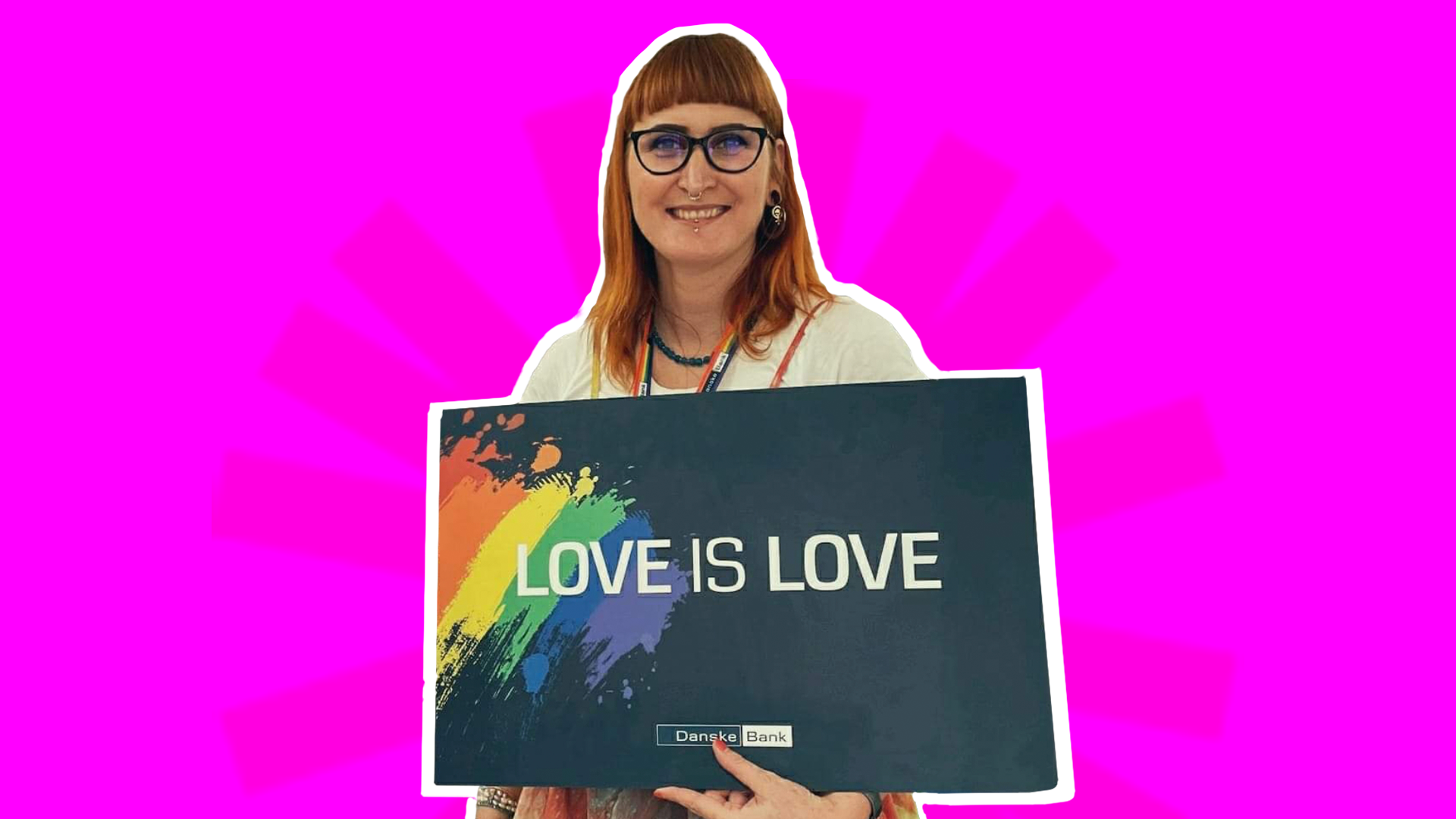Board member in corporate rainbow network: “We want to transform the labour market”
At LGBT+ Denmark we receive many questions about how to start LGBT+ networks in the workplace. And what better way to answer that than to catch up with Ninna Fedder Helsinghoff – Chief Software Engineer and board member of Danske Bank Rainbow Network DK. How did the network develop to 715 members today and what makes it such a success?
Ninna Køhrsens starts at the beginning: “Danske Bank Rainbow Network DK began with Danske Bank participating in Copenhagen Pride in 2016, but after a couple of years the corporation decided to not take part anymore. This led a group of employees to arrange going to Copenhagen Pride on their own, where the number of participants grew from 70 to 300. There was a buzz around the rainbow agenda, and a group of five employees succeeded in establishing Danske Rainbow Network DK in January 2020.”
“From the start the network established itself as a voluntary association with its own elected board, which receives sponsorship from the corporation and has the bank’s CEO as a sponsor.” Ninna elaborates.
The network day-to-day
And the network has really taken off with a variety of both policy work and social events: “The board meets every month, and there are several working groups within three pillars: Learning, Events, and Policies, each with specialized subgroups. Additionally, there are cross-network meetings every other month, as well as meetings with sponsors, HR, and the Diversity & Inclusion department.” Ninna explains.
“Activities are typically organized by the working groups, but the board can also arrange events directly. We usually have 3-5 speakers annually, ideally a mix of publicly known figures, professionals/researchers, and individuals sharing lived experiences. We typically have 3-5 events for Pride, often including running, dancing, choir singing, canal tours, and a family event, but it is the volunteers in the working groups who decide. Additionally, we have 1-2 film screenings a year, usually at Mix, and we also hold drag nights, pub crawls, etc.”
“As an association, we of course have a general assembly, and an annual brainstorming session where we plan the activities for the coming year and recruit volunteers for the working groups. For volunteers, we have 2 parties a year: one pre-Pride and one post-Pride, to reward volunteer efforts. There is no fixed format; it is organized by the Events working group.”
And all the work seems to be really paying off. In 2023 Danske Bank Rainbow Network DK won Bronze in the Stonewall Global Diversity Index – and this year they won Silver. And the recognition can also be felt on both the work and dance floor:
“There is strong interest in our work; we have an influx of members and are invited to companies, universities, and unions to talk about the network. We have influenced the collective agreement in our sector! Our parties are very popular – we have our CEO as the bartender at our rooftop party!”
Promoting diversity is not a competitive parameter
I ask Ninna what her hopes are for the rainbow network in the future.
“I hope that we can transform not only our corporation, or the sector, but the entire labour market. We do not see promoting diversity as a competitive parameter.” This means that the network openly shares their materials and everything else they can – trying to support the agenda rather than just the network itself.
“We want to create such a safe environment that the very idea of having to hide one’s identity seems foreign. Ultimately, we want to become purely a social association, because we have succeeded with everything else.”
“Our network is for everyone. We do not know how many in our network are within the LGBT community and how many are allies, but it is fundamentally irrelevant. The network is based on giving members a voice, so we do not fear that anyone will be overlooked, and our working groups actively strive to ensure that no one is forgotten.”
3 tips from Ninna, if you want to start your own corporate rainbow network
- Start! We originally started with one person organizing pride, to five people establishing a network, to now 715 members. The interest is there, but someone needs to champion it and take the lead.
- Collaborate with other networks.
- Try to get management’s support, e.g., through a sponsor. This legitimizes the cause without having to give up autonomy in your network.
